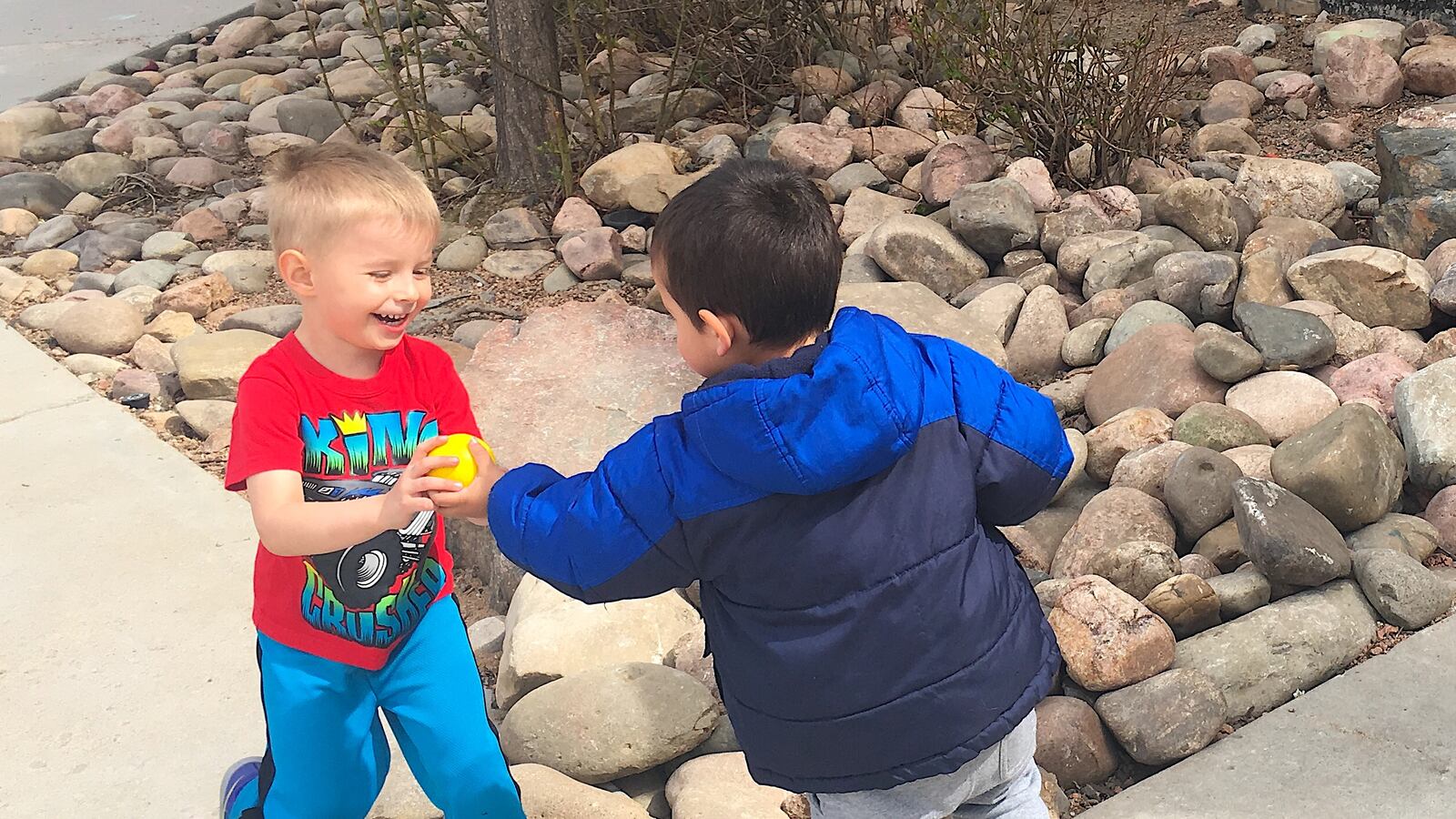The Denver Preschool Program, most well-known for providing millions of dollars to help the families of 4-year-olds pay for preschool, is expanding its scope.
Starting this month, the nonprofit will put a share of its funding from a citywide sales tax toward improving preschool classrooms for 3-year-olds — something it has long done in 4-year-old classrooms. Those improvements could take the form of teacher training or coaching, teacher scholarships for educational programs, or new blocks and playground equipment.
The $700,000 initiative pales in comparison to the $15 million that the Denver Preschool Program will spend on tuition assistance for the city’s 4-year-olds this year. Still, it’s another sign of growing recognition that investments in younger children help amplify the benefits of widespread and politically popular 4-year-old prekindergarten programs.
The push to serve more 3-year-olds can be seen around the state and nation. Colorado’s two largest school districts — Denver and Jeffco — both plan to add new preschool seats for 3-year-olds if tax measures for education pass in November.
Last year, New York City school leaders began phasing in free universal preschool for the city’s 3-year-olds, an expansion of the city’s ambitious Pre-K for All program, which served about 70,000 4-year-olds in 2017-18. In 2008, Washington, D.C., passed a major preschool overhaul law, which helped make it one of the few places in the country where a large majority of 3-year-olds attend free preschool.
Jennifer Landrum, president and CEO of the Denver Preschool Program, said when city voters first passed a sales tax in 2006 to fund the program, the ballot language specifically earmarked the proceeds for 4-year-olds. But in 2014, when voters approved a 10-year extension of the sales tax, they also OK’d language that allowed spending on 3-year-olds.
The expanded age range fit with the shifting national policy conversation at the time, which increasingly emphasized the importance of starting with children younger than 4, said Landrum.
Research shows that early childhood programs can produce huge long-term gains for children, particularly those from low-income families. But there’s a caveat: The programs must be high-quality.
That’s part of the reason the Denver Preschool Program will focus its new 3-year-old funding on boosting quality.
“It’s such a logical next step when you can see the gains 4-year-olds can make in that one year of high-quality preschool,” said Landrum. “It just makes sense.”
The improvement efforts will focus on the preschool classrooms of about 3,400 Denver 3-year-olds.
Unlike the city’s 4-year-olds, those 3-year-olds will not get tuition help from the Denver Preschool Program. There’s not enough money for that, said Landrum.
In Colorado, a fraction of 3-year-olds attend publicly funded preschool through Head Start or the Colorado Preschool Program, a statewide program that pays for preschool for young children with certain risk factors. Some 3-year-olds also qualify for free preschool because they have disabilities.
Denver district officials say they hope to add 500 new preschool seats for 3-year-olds if the statewide ballot measure, Amendment 73, passes in November. Right now, there are long waitlists for that age group.
In Jeffco, which serves 3- and 4-year-olds together in the same classrooms, expansion plans also hinge on the outcome of November’s election. A proposed district bond measure would help renovate 70 classrooms for the preschool set, for a total of about 1,100 additional seats. Currently, the district serves about 3,500 preschoolers — about half of them 3-year olds.
And if Amendment 73 or the district’s mill levy override — or both — pass, district officials say it would allow them to convert more half-day preschool slots to full-day slots, hike teacher pay, and improve the qualifications of early childhood staff.

